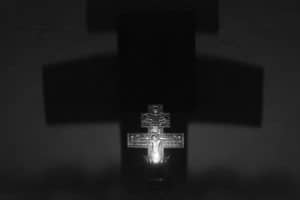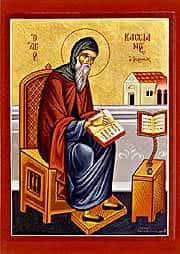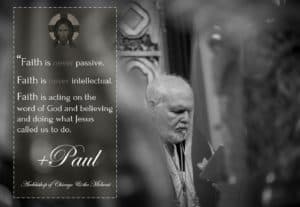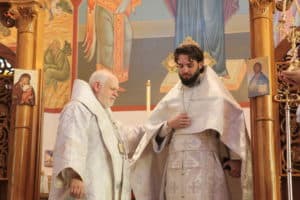GREAT LENT
“Let us begin the Fast with joy!”
 What is Great Lent? Simply put, it is a season of spiritual renewal, a re-awakening of the life of the soul. It is the time the Holy Fathers call the “Tithe of the Year,” meaning that this 1/10 of our calendar year should be dedicated solely to the rejuvenation of our faith through the services of the Church. Lent is our liturgical journey to Pascha, to the resurrection of Christ whereby we re-affirm our baptismal calling which is nothing less than death to the old self so that Christ, the New Adam, might come alive within us. With this in mind, it is helpful to keep in mind these practical points about Great Lent:
What is Great Lent? Simply put, it is a season of spiritual renewal, a re-awakening of the life of the soul. It is the time the Holy Fathers call the “Tithe of the Year,” meaning that this 1/10 of our calendar year should be dedicated solely to the rejuvenation of our faith through the services of the Church. Lent is our liturgical journey to Pascha, to the resurrection of Christ whereby we re-affirm our baptismal calling which is nothing less than death to the old self so that Christ, the New Adam, might come alive within us. With this in mind, it is helpful to keep in mind these practical points about Great Lent:
- Scheduling. Parties, banquets, social visits, family vacations, movies, should be scheduled before and after Great Lent. Do you best to amend your calendar so that you may plan to attend all of the Lenten services – if possible. Make simple changes to your daily schedule if need be so that the extracurricular activities do not interfere with the Lenten season.
- Prayer. A daily rule of prayer in the morning and evening is a must for all Orthodox Christians. Find a place where you can be alone and “pray to your Father in Heaven in secret.” Pray for help in prayer, “Lord teach us to pray.” Pray for the Holy Spirit Who empowers and perfects all our personal prayer. Know, too, that prayer has many dimensions of experience, bodily, mentally, and from the heart. Be ready to struggle against inattention and coldness of heart. Christ was tempted fiercely in the desert when He prayed and fasted, and the same will happen to you. Once the prayer rule is completed, begin your daily work and activities with the intention to remember God in all you do. Use the Jesus Prayer. Memorize a verse from the psalms.
- Sacramental Life. Start to pray and meditate on how you will prepare for at least one Confession during Lent. Take the time to really evaluate your behaviors, feelings, intentions, thoughts, values, etc. Do not be afraid to use as your reference point our Lord Jesus Christ and the teachings of the gospel, especially the Sermon on the Mount (Matthew chapters 5-7). Along with this, make the commitment to prepare and receive communion as much as possible, not only on Sunday mornings but also at the Presanctified Divine Liturgy during the week.
- Spiritual Reading. Choose one book from the Old Testament and one book from the New Testament and read them through during Lent. Find a book that teaches about the life of an Orthodox saint. Once again, time should be set aside to make this a daily discipline, i.e., not done “by whim.”
- Charitable Gifts and Works. There is always a danger of our faith and spirituality turning into something “selfish.” As a remedy for this the Lord gives us the commandments of alms. Find someone who is in need and help them the best you can on a regular basis. Do not think you will ever “save them” or make their situation any better through your own effort. Little acts of kindness matter. Try to give people what they need (and not necessarily want they want).
- Fasting. Fasting when done properly is unpleasant for the body, at least at first. Make a firm intention to the Lord that you will do your best. The goal is not to be faithful to an external “rule,” but to humble the flesh so that the soul might be liberated from bondage to base desires. Try not to think too much about what you need to buy or how to cook your food. Make it as simple as you can. Fasting is a necessary means to end, which is to restate the human soul as our most pre-eminent human faculty.
May God bless us with a fruitful 40 days!
 “Fasts and vigils, the study of Scripture, renouncing possessions and everything worldly are not in themselves perfection, as we have said; they are its tools. For perfection is not to be found in them; it is acquired through them. It is useless, therefore, to boast of our fasting, vigils, poverty, and reading of Scripture when we have not achieved the love of God and our fellow men.” (St. John Cassian)
“Fasts and vigils, the study of Scripture, renouncing possessions and everything worldly are not in themselves perfection, as we have said; they are its tools. For perfection is not to be found in them; it is acquired through them. It is useless, therefore, to boast of our fasting, vigils, poverty, and reading of Scripture when we have not achieved the love of God and our fellow men.” (St. John Cassian)



